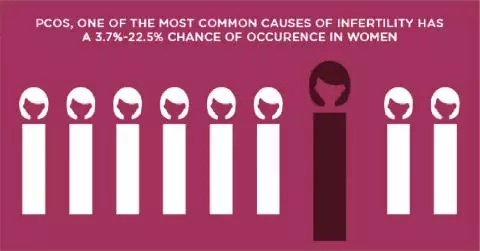Progesterone

The hormone, progesterone plays a key role in the female reproductive system. It can increase fertility of a woman and can also help in sustaining it. Due to this reason, some fertility treatments involve progesterone medications. They can be administered in the form of progesterone pills, injections, or vaginal suppositories.
The use of progesterone for conceiving is recommended to women who require help through Assisted Reproductive Technology (ART). It is also consumed by women who have a history of multiple miscarriages or are having a short luteal phase as progesterone levels play a huge part in the sustenance of pregnancy.
What is Progesterone?
Progesterone and oestrogen are two female sex hormones. In essence, hormones are chemical messengers that help the brain regulate different functions of the body. From your circadian rhythm to your reproductive system, hormones are used to regulate everything.
Progesterone is a key female sex hormone that is also used as a part of IVF treatment for women.
What is the main purpose of progesterone?
The main purpose of progesterone for women is to prepare the lining of your uterus or the endometrium for the implantation of a fertilised egg and support its growth. This preparation happens once every 21-35 days usually, and if a pregnancy doesn’t occur, your body sheds the endometrium during your period.
Progesterone is essential in supporting the menstruation cycle and helping in maintaining the early stages of your pregnancy. If your body has too little progesterone, it can lead to complications with the pregnancy or cause side effects similar to symptoms of menopause.
Apart from these, progesterone also helps in regulating your mood and supports thyroid function and lactation.
How Does Progesterone Work?
Ovulation occurs during your menstrual cycle and your ovary releases an egg somewhere around the middle of your menstrual cycle. The empty egg follicle in the ovary forms corpus luteum after ovulation and begins to produce progesterone. The release of progesterone happens during the migration of an egg from the fallopian tube during a natural cycle. The hormone is also responsible for increasing the vascularity of the endometrial lining and for stabilising the endometrium while preparing for the implantation of the embryo.
Progesterone acts as a protection for the embryo, which later develops into the foetus, by preventing the thinning and breaking down of your uterine lining (endometrium) during the first few weeks of pregnancy. The hormone also prevents complications such as abnormal bleeding and its consequences on your pregnancy.
Progesterone during pregnancy
If a sperm is able to fertilise your egg and it leads to conception, the corpus luteum formed in your ovary after ovulation doesn’t break down (like it would otherwise in a regular menstrual cycle) and keeps on producing more progesterone. The thickening of your endometrium during the pregnancy is essential in providing nutrients to the embryo. After the formation of the placenta, the progesterone production is carried out by the placenta instead of the corpus luteum.
Progesterone levels in your body increase each trimester during your pregnancy and reach their highest levels in your 3rd trimester, which is from weeks 28 to 40. Your progesterone levels decline gradually with advancing age as you inch towards menopause when ovulation stops in your body.
Progesterone Symptoms: High and Low Progesterone Levels
Irregular cycles or anovulation is the first sign of a hormonal imbalance. Having a short luteal phase is commonly associated with low levels of progesterone and can be a possible cause of infertility as well. Females who aren’t pregnant may also experience anxiety, mood swings, hot flashes, trouble sleeping, and irregular periods as symptoms of low progesterone levels.
Females who are pregnant and have low progesterone levels in their body can experience complications such as miscarriage, preterm labour, and ectopic pregnancy (occurs when an embryo implants itself outside of the uterus).
Generally, high levels of progesterone in the body don’t lead to any negative side effects. Progesterone for pregnancy is often recommended by healthcare professionals in some scenarios. Usually, progesterone levels naturally increase in your body during your pregnancy. In rare scenarios, high progesterone levels can be a sign of adrenal or ovarian cancer.
Progesterone Risks
Progesterone is often recommended by healthcare providers to certain women who can benefit from its use. Although progesterone is essential for regulating your menstrual cycle and supporting a healthy pregnancy, taking it as a supplement may cause some side effects. You are advised to consult your doctor if you experience any of the following symptoms and they are severe in intensity or persistent:
- Headache
- Upset stomach
- Tender breasts or pain in breasts
- Diarrhoea
- Fatigue
- Pain in the muscles, joints, or the bone
- Irritability
- Mood swings
- Vaginal discharge
- Trouble urinating
- Anxiety
If you find yourself experiencing the following symptoms, call your doctor immediately:
- Lumps in breast
- Migraine
- Severe dizziness
- Fainting
- Slow or slurred speech
- Loss of balance
- Lack of coordination
- Swelling or pain in the leg
- Sharp pain in the chest
- Fast heartbeat
- Numbness or weakness in a limb
- Double vision
- Uncontrollably shaky hands
- Pain or swelling in the stomach
- Hives or skin rashes
- Coughing up blood
- Swelling of your face, tongue, lips, throat, hands, ankles, feet, or lower legs
What are the common disorders associated with progesterone?
There are some common disorders that are associated with abnormal levels of progesterone.
Low levels of progesterone are linked with the following:
Polycystic ovarian syndrome (PCOS): A condition where hormonal imbalance affects ovulation and menstruation, PCOS is identified by irregular periods, excess levels of male hormones in the body, and multiple cysts in the ovaries.
Endometriosis: In this condition, tissue resembling your uterine lining starts to grow outside your uterus.
Low levels of progesterone are linked with the following:
Ovarian tumour: Tumours in the ovaries in this condition can be non-cancerous or cancerous.
Adrenal tumour: Tumours in the adrenal glands, which are located above the kidneys form in this condition.
Congenital adrenal hyperplasia: This is a genetic disorder that affects the ability of the adrenal glands to produce hormone properly.
What are normal levels of progesterone?
Progesterone levels typically fluctuate during the lifetime of a female, especially during her menstrual cycle. Your healthcare provider will determine whether your progesterone levels are normal or not after performing a blood test by taking your medical history and other factors into account. However, here are the approximate values of normal progesterone levels for an adult female for informational purposes.
| Normal progesterone levels for an adult female (approximate values) | |
|---|---|
| Pre-ovulation | <0.89 |
| Ovulation | ≤12 |
| Post-ovulation | 1.8-24 |
| 1st trimester of pregnancy | 11-44 |
| 2nd trimester of pregnancy | 25-83 |
| 3rd trimester of pregnancy | 58-214 |
Are you wondering about when progesterone test should be done? Progesterone test is often recommended by doctors to determine the timing of ovulation and monitor your hormone levels during IVF treatment, for example your doctor may also recommend you take a progesterone test if you are exhibiting symptoms of PCOS, endometriosis, and other diseases associated with progesterone.
When should you take progesterone?
Progesterone is generally prescribed by healthcare providers as a supplement to females who are in the following category:
- Females who are experiencing symptoms of perimenopause or the transition to menopause
- Females who need to regulate their menstrual cycle
- Females who need to prevent pregnancy
- Females who are pregnant and low levels of progesterone
- Females who are going through IVF treatment
Incorporation of Progesterone in an IVF Cycle: When Should You Take Progesterone While Trying to Conceive?
Using any form of ART involves a minor surgical extraction of the eggs from the fallopian tubes. During this process, the cells that create progesterone after ovulation are extracted along with the eggs. Hence administering progesterone supplements after the retrieval of eggs is vital to prepare the body for pregnancy. The supplements thicken the uterine lining to equip it to be prepared when the transferred embryo attaches itself to the lining.
Progesterone supplements are required during pregnancy as well to safeguard against a miscarriage. The medication prescribed by a doctor is usually recommended to be continued up to 12 weeks of pregnancy in a cycle where embryo transfer is performed. You are advised to follow guidelines shared by your fertility expert for taking progesterone and clarify any doubts with them if needed.
Conclusion
Progesterone is an important female sex hormone as it influences your reproductive system, including your menstrual cycle and pregnancy. This hormone is responsible for creating a plush, healthy endometrium to support the implantation of the embryo and development of the foetus. Low progesterone levels during the initial phases of pregnancy can lead to miscarriages or other complications.
Your fertility expert will prescribe your progesterone as a supplement to support your IVF treatment. If you are not taking the IVF treatment, but have other symptoms associated with low levels of progesterone, your healthcare provider may recommend progesterone supplements to help regulate your menstrual cycle or support a healthy pregnancy.
 Infertility Counselling
Infertility Counselling Female Infertility Treatment
Female Infertility Treatment Andrology Treatment
Andrology Treatment Fertility Enhancing Surgeries - Female
Fertility Enhancing Surgeries - Female Fertility Enhancing Surgeries - Male
Fertility Enhancing Surgeries - Male Endoscopy Treatment
Endoscopy Treatment IUI Treatment
IUI Treatment IVF Treatment
IVF Treatment ICSI Treatment
ICSI Treatment Advanced IVF Solutions
Advanced IVF Solutions Embryology
Embryology Vitrification Egg, Embryo, Sperm Freezing
Vitrification Egg, Embryo, Sperm Freezing Preimplantation Genetic Testing (PGT)
Preimplantation Genetic Testing (PGT) Donation Program Embryo / Egg / Sperm
Donation Program Embryo / Egg / Sperm Self-cycleTM IVF
Self-cycleTM IVF

 Self-cycleTM IVF
Self-cycleTM IVF











